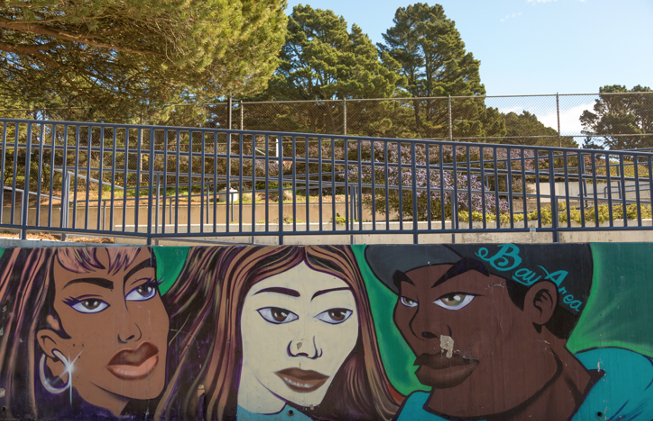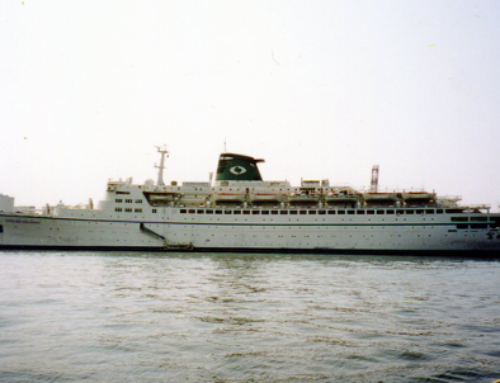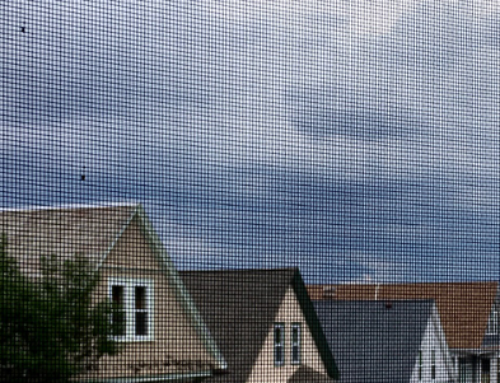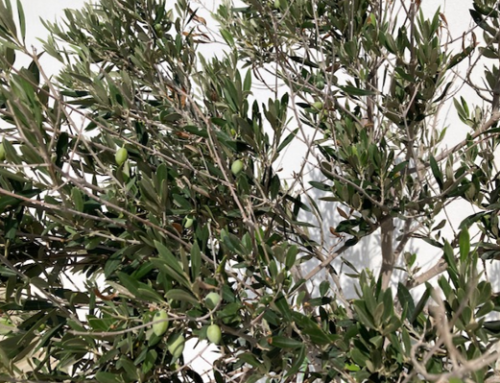ROBESON CENTER FOR COMMUNITY HEALTH1
(formerly Robeson Justice Academy2)

COLLECTIVE LEARNING CATALOG
2045-46
INVITATION TO STUDY
To be granted the public rank of Facilitator and thus be eligible to serve as a teacher, guide, or chair of any community funded initiative in Frisco, you are invited to undertake the following:
- Complete all the Core Courses3 in each field of study
- Develop deep dexterity in at least three fields by completing two or more specialized courses in each of your chosen fields.
- Lead Public Skill Share in your community4on the following:
o Wilderness Survival Strategies: Using your choice of climates and contexts in our region, share one concrete skill needed to survive off the grids. Be sure your lesson provides survival pathways for all bodies and minds, including those using assistive devices or needing pharma support.
o Invention: Demonstrate a new technology, sustainable engineering solution, or regenerative land practice that you have developed.
o Theoretical or Creative Contribution: Teach a lesson in which you share a novel insight or artistic work that shifts understanding of the worlds as we know them.
o Healing Practice: This may be taught collectively or offered freely to an individual in the community offline.
FIELDS OF STUDY
History & Social Arts:
CORE COURSES:
- Continental History I, Origins-1526: Lifeworlds of Turtle Island:
This course is an introduction to political theories, cosmologies and economies original to this land, including Ohlone, Diné and Anishinaabe nations. These baseline philosophies and patterns ground the rest of the core history trainings. - Continental History II, 1526-1865: Settler Colonial Deathworlds:
Beginning with the first enslaved Africans brought onto the soils of Turtle Island, this course moves through the first three waves of attempted genocide against First Nations and the establishment of the racial economy of Black social death, also known as capitalism. - Continental History III, 1865-2025: The Afterlives of Slavery & Settlement:
Bookended by the formal end of chattel slavery in the 19th century, and the cluster of zoonotic plagues in the early 21st century, this course engages at policies of racial dispossession, gratuitous violence, and environmental destruction under what were then the US and Canadian political systems. - Continental History IV: 2025-present: The Greatest Depression & the Decolonial Transition:
Beginning with the global pandemic of COVID-25, this course charts the last phase of high capitalism and the emergence of land repatriation and reparations in the federated Nations.SPECIALIZATION COURSES: - When there were Two: The Rise & Fall of the Gender Binary
- Mercantilist Technologies
- From Bandung to FESTAC: Transnational Formations
- Plantation Geographies
- Buddhist Social Psychology
- Tarot for Movement
- Beginner Hoodoo (by petition only)
- Historical Archaeology: Secondary Excavation of the I-Hotel Site
Literary Arts & Culture:
CORE COURSES:
- La Cultura Cura: Critical Xicanismo for the 21st Century
From the Zoot Suit riots to the UFW to the Xicana Moratorium Project, this course engages the practice and praxis of liberation in Califaztlán. Includes weekly Danza Azteca embodied practice. - Rap, Reggaetón, and Rock & Roll: The Rhythms of Africa in the Americas
Learners will practice songwriting in English and Spanish in three historical music genres of the 20th century, and then create a collective sonic VR experience to introduce these Afro-diasporic genres to their peers. - Making Revolution Irresistible: Cultural Organizing Theory & Practice
Drawing on the blueprint of the successful Black Lives Matter movement that eliminated the violence of police and prisons in less than a generation, learners will examine the role of fashion, aesthetics, sports, and music in that movement and create applied campaigns to address contemporary concerns, including ethical space travel and deepening Native-Black healing.SPECIALIZATION COURSES: - Poetry for the People: Practicing in the Tradition of June Jordan
- The US Constitution and Other Myths
- Morrison & Marmon Silko: Storytellers of the 20th Century
- Indigenous Eurasian Theater from Moliere to Noh
- After Hollywood: The Democratization of Film Production in the 2030’s
- Writing for the Holographic Screen
- Before Bechdel: The Patriarchal Age of Cinema
- MuralCraft: On the Ruins of the Financial District
Civic Arts & Praxis:
CORE PRACTICUM ROTATIONS:
- Reparations Claim Processing:
Two shifts per week helping neighborhood residents navigate the reparations process according to the parameters set out in the quadripartisan ATONE Act passed in 20415. Be sure to familiarize yourself with the three main applications (DCS – Descendants of Chattel Slaves, SMIT – Survivors of Military & Imperial Terror, and SAG – Survivors of Attempted Genocide), as well as the process for residents eligible for multiple reparations funds. - Settler Status Extensions:
Three shifts a month supporting settlers whose ten-year invitation to the Land is close to expiring or has expired. Help them file a right relation petition for extension with the Muwekma Council, or complete the application to establish right of return with their indigenous ancestral land.SPECIALIZATION COURSES: - Internship at BANSHI (Black and Native Sovereign Hub for Innovation)
- Two season term on the Transformative Justice Council
- Butterflies Over Borders Exchange Program options:
15th Archipelagic Power Summit in Hawaii. Delegation Sets sail in a wooden Hōkūleʻa replica on the first full moon of autumn, and is open to all with at least half of the delegate spots reserved for community members representing the Polynesian diaspora, including but not limited to Tonga, the United Samoan Archipelago, Fiji, and the Hawaiian Nation.
Juarez Pilgrimage. Traveling on bicycle and foot, participants will retrace the pathway of historical migrants who were terrorized by the US settler state, economic imperialism and patriarchal violence. Along the way, participants will meet with nations about their truth and reconciliation processes and healing practices. The journey culminates in ceremonia at the banks of the Rio Grande to honor the sisters stolen and ask their guidance.
The Greatest Migration. Both of the Center’s solar camper buses will travel to the Sea Islands of New Afrika to engage in a political and cultural exchange with the Gullah-Geechee Queendom, one of the oldest sovereign Black communities on Turtle Island. In addition to a language intensive, participants will also learn cultivation and cultural conservation techniques. Along the way, there will be stops in Texas, Oklahoma & Louisiana to connect with the historical migration of Black people to Califas.
The Art of Stewardship:
CORE COURSE:
Rotate each season through maintenance crews for the Center:
o Viral Mitigation Crew (maintain air filters & sanitize high touch surfaces)
o Kitchen Crew (develop recipes, consult with farm crew for seasonal menu alignment, execute meals for all 100 day learners and 30 families living at the Center)
o Farm Crew (plant, harvest & nurture the high density food plots on the former parking lot sites)
o Grounds & Facilities (landscaping, mural touch-ups, maintain water filtration and solar power grids)
o Safety Team (on-site mediations, neighborhood check-ins and readiness for infiltration or attack from militant settler apologists)
- SPECIALIZED COURSES: LAND PRACTICE
o Pollinate and Serve:
Nurture the native plants and pollinators that were sown last year in the 40 decommissioned and gutted San Francisco Police Department vehicles. Maintain the living altars of ancestral foods planted in honor of stolen Frisco residents Alex Nieto, Jessica Williams, Mario Woods & Idriss Stelley.
o Regional Indigenous Foodways:
Cultivate both Ohlone & Pomo original foods, and develop proficiency preparing them in heritage and fusion recipes. Special attention given to acorns, Douglas iris & California hazelnuts.SPECIALIZED COURSES: HEALING & SAFETY - Security for Political Mobilization
- Medic Training: Stabilization and Emergency Triage
- Medic Training: Farm to Pharma – Integrating Plant Medicine and Allopathics
- Witnessing 4.0: Exceptional Violence to Exceptional Healing
Dialectic Arts:
CORE TRACKS:
- Ohlone I-IV & Heritage Speakers
- Mam I-IV & Heritage Speakers
- AAVE I-IV & heritage Speakers
- Cantonese I-IV & Heritage Speakers
- Diné I-IV & Heritage Speakers
- Twi I-IV & Heritage Speakers
- Sudanese Arabic I-IV & Heritage Speakers
- Spanglish I-IV & Heritage SpeakersSPECIALIZED COURSES:
- Translating the Octavia Butler Codex: For the Center’s contribution to the Interstellar Capsule, we will offer a 720 degree translation of Octavia Butler’s ovaric Patternist series, along with her papers archived at the Huntingdon Library and Gardens in southern Califas.
The Arts of Pleasure & Embodiment:
CORE COURSES:
- Consent I-III
- Inter-Generational Healing
- Meditation & MediationSPECIALIZED COURSES:
- Somatics Training
- Exorcising the Settler Within
- Gone too Soon: Ancestor Practice
- Wheelchair Basketball for All Bodies
- Mindful Pole Dancing
- Basic Pomo Archery
- Remédios: Casting Spells to Buoy the Spirit
- The Sweet Science: Limb-to-Limb Combat
Enumerated Arts:
CORE COURSES:
- Sustainable Engineering (project-based): This season will focus how to harness the moisture in the marine layer for drinking to take pressure off the Hetch Hetchy watershed and the communities that rely on it.
- Comparative Mathematics: Maya, Indus & Congo Numeracies: Participants will study the foundational logics of three ancient mathematical systems and develop at least two comparative proofs that reveal the unique contributions of each.SPECIALIZED COURSES:
- Environment & Epidemiology: Fossil Fuels, Extractivism & the Emergence of Zoonotic Diseases
- Fractals Aesthetics
- Eating Pi: The End of Pythagorean Dominance in Mathematics
- Nubian Physics
Completed Course registrations can be brought or telegraphed to Mx. Rodriguez-Jones at their office near the marigold field.
Notes:
[1] I use the term COVID-1619 as articulated by Rev. Otis Moss, III. See https://www.youtube.com/watch?reload=9&v=vkJlT00onrA&feature=youtu.be
[2] Robeson Justice Academy is an already-existing social justice themed public school in San Francisco. Soaked in antiracism and dripping in antiblackness, I write about the contradictions in both the school and in the post-gentrification city that produced it in Progressive Dystopia (Duke 2019). Building on my familiarity with the institution’s pasts as a former teacher and ethnographer, here I imagine it in a post-COVID future. This catalog is an artifact from that future.
[3] Most courses can be taken in Spanish, English, or International Sign Language, while a few are still only available in one or two of the standard lingua.
[4] The community you choose to root in and be accountable to is to be decided in consultation with your peer co-counselor, elders, and youth in your life. As needed, you may also refer to dreams, divinations, and signs from the land.
[5] The ATONE Act was, of course, developed after the rollour of reforms recommended by the HR 40 Commission established by the BREATHE Act in 2021.
Cite as: Shange, Savannah. 2020. “Curing COVID-1619: An Artifact from a Possible Future.” In “Post-Covid Fantasies,” Catherine Besteman, Heath Cabot, and Barak Kalir, editors, American Ethnologist website, 19 October 2020, [https://americanethnologist.org/features/pandemic-diaries/post-covid-fantasies/curing-covid-1619-an-artifact-from-a-possible-future]
Savannah Shange is an Assistant Professor of Anthropology at UC Santa Cruz where she also serves as principal faculty in Critical Race & Ethnic Studies. Her first book, Progressive Dystopia: Abolition, Anti-Blackness and Schooling in San Francisco (Duke 2019) is an ethnography of the afterlife of slavery as lived in the Bay Area. Her research and teaching interests include state violence, late liberal statecraft, multiracial coalition, ethnographic ethics, queer politics, and abolition.




